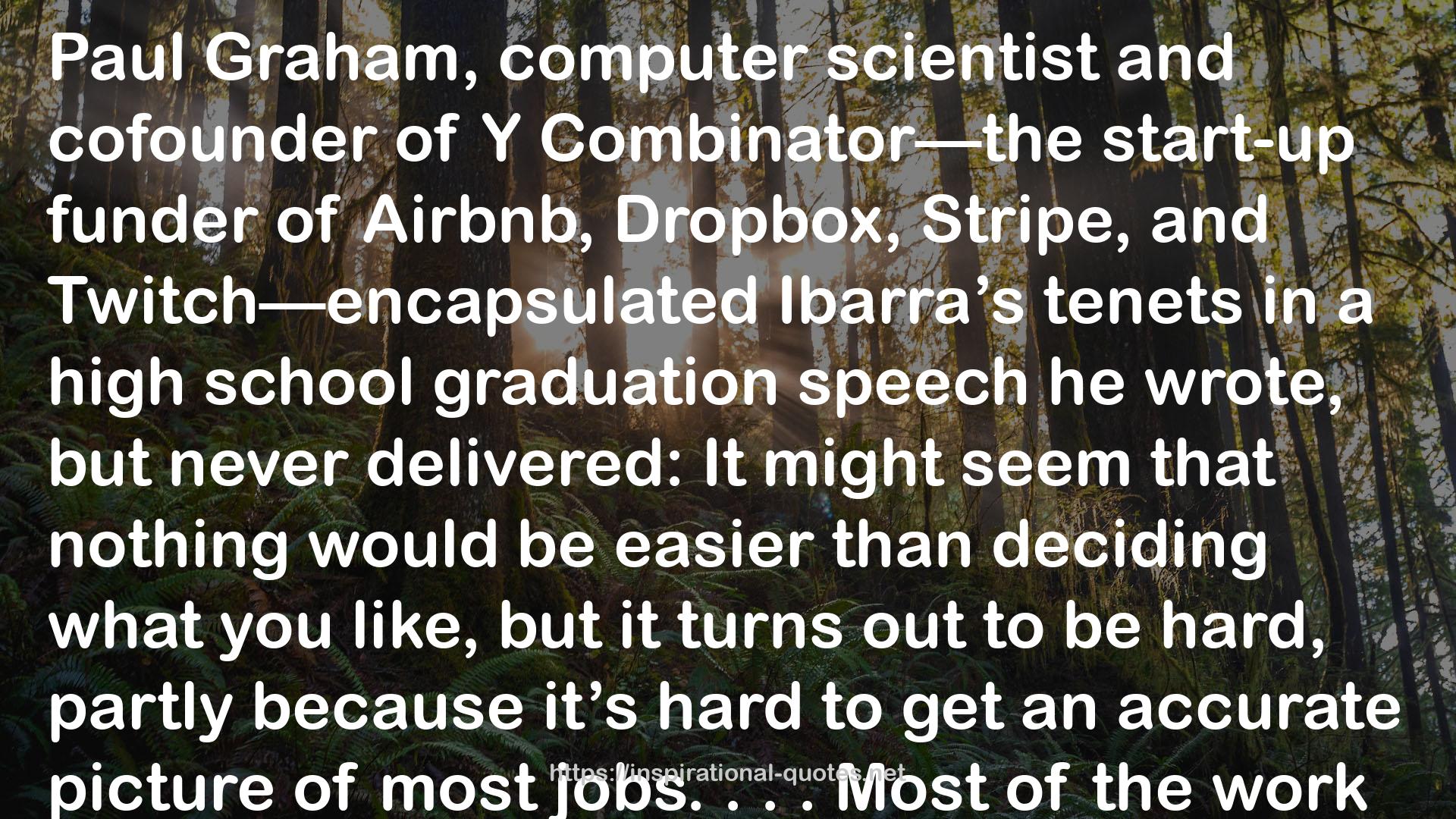" Paul Graham, computer scientist and cofounder of Y Combinator—the start-up funder of Airbnb, Dropbox, Stripe, and Twitch—encapsulated Ibarra’s tenets in a high school graduation speech he wrote, but never delivered: It might seem that nothing would be easier than deciding what you like, but it turns out to be hard, partly because it’s hard to get an accurate picture of most jobs. . . . Most of the work I’ve done in the last ten years didn’t exist when I was in high school. . . . In such a world it’s not a good idea to have fixed plans. And yet every May, speakers all over the country fire up the Standard Graduation Speech, the theme of which is: don’t give up on your dreams. I know what they mean, but this is a bad way to put it, because it implies you’re supposed to be bound by some plan you made early on. The computer world has a name for this: premature optimization. . . . . . . Instead of working back from a goal, work forward from promising situations. This is what most successful people actually do anyway. In the graduation-speech approach, you decide where you want to be in twenty years, and then ask: what should I do now to get there? I propose instead that you don’t commit to anything in the future, but just look at the options available now, and choose those that will give you the most promising range of options afterward. "
― David Epstein , Range: Why Generalists Triumph in a Specialized World
